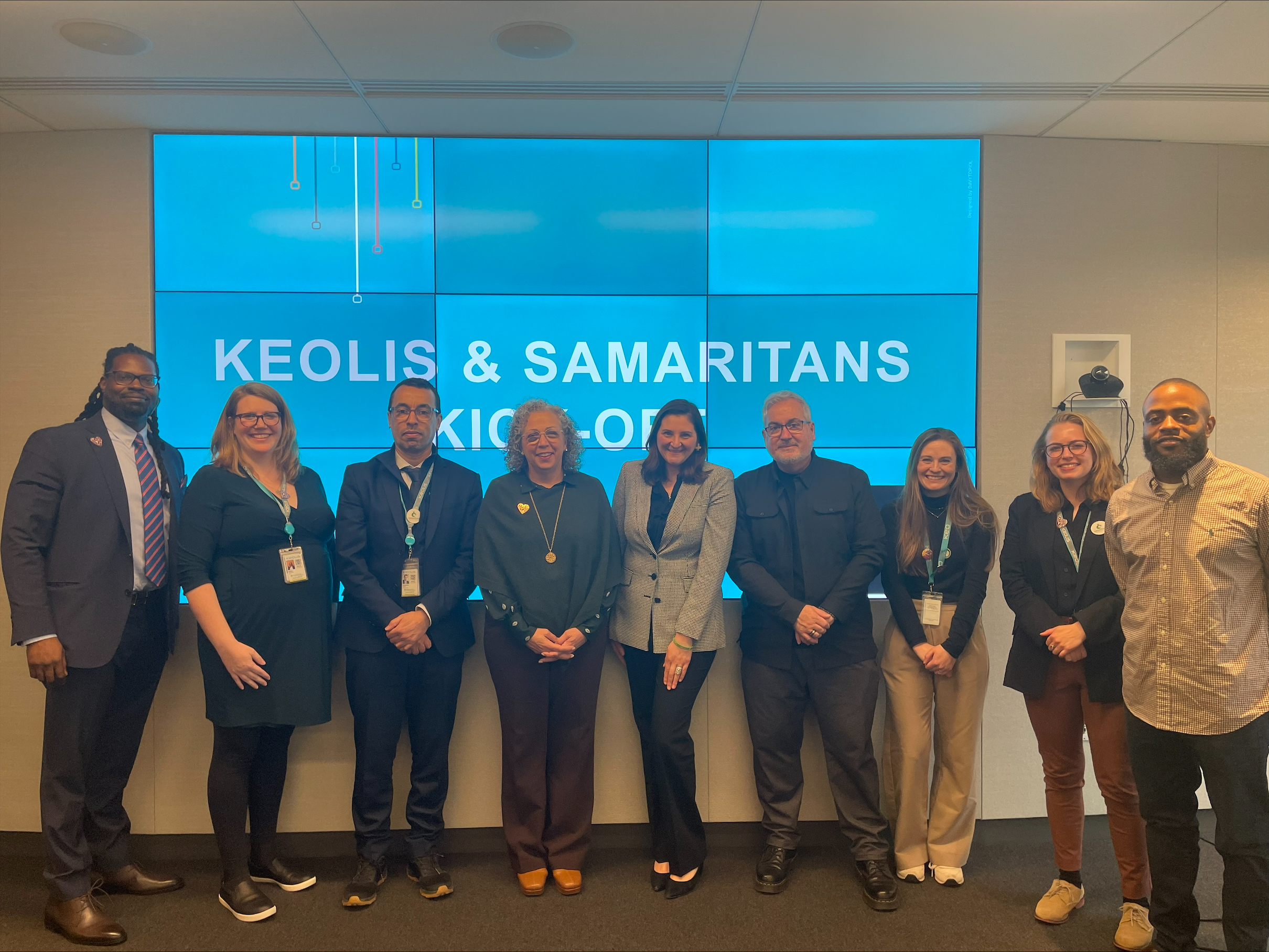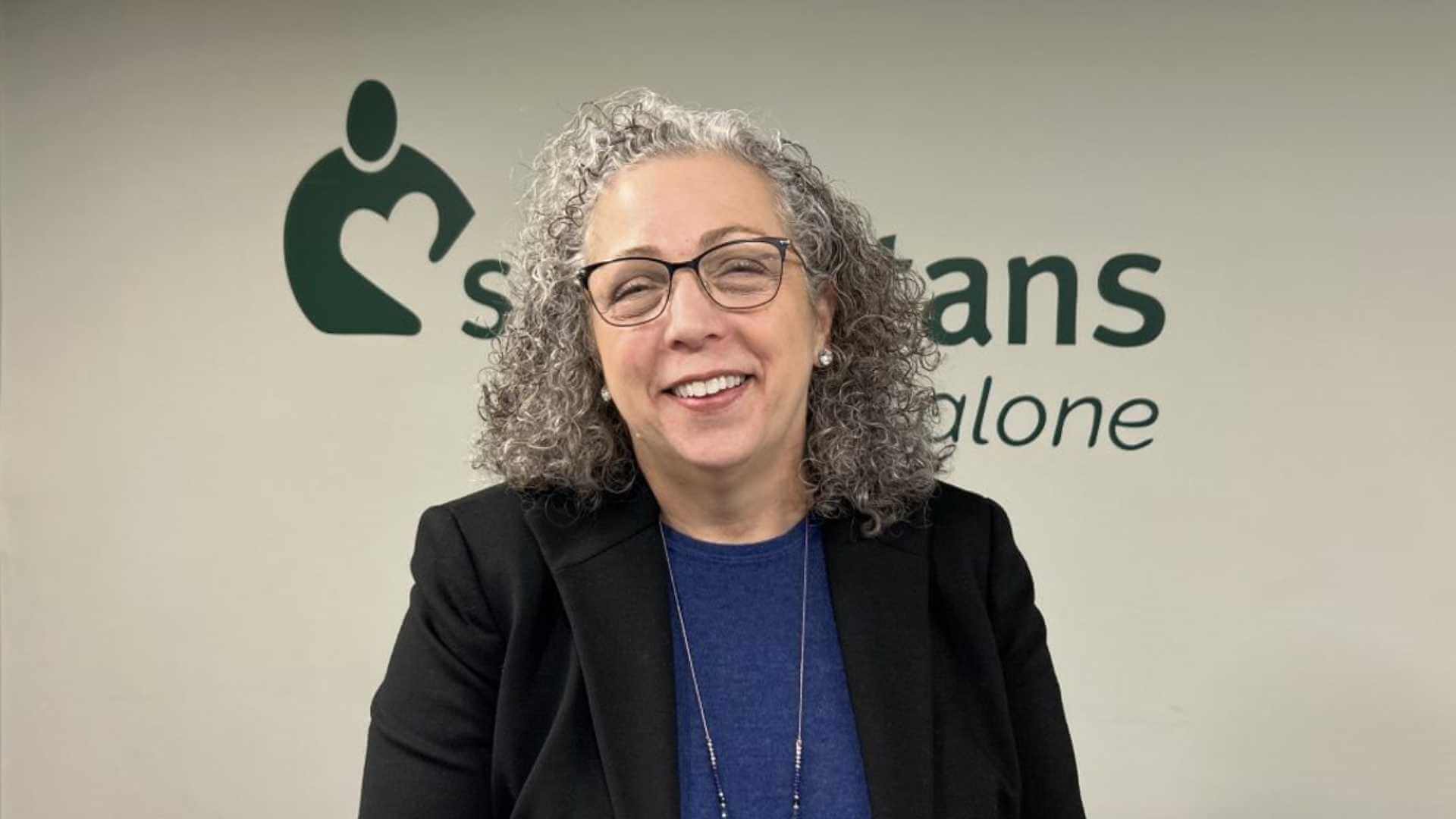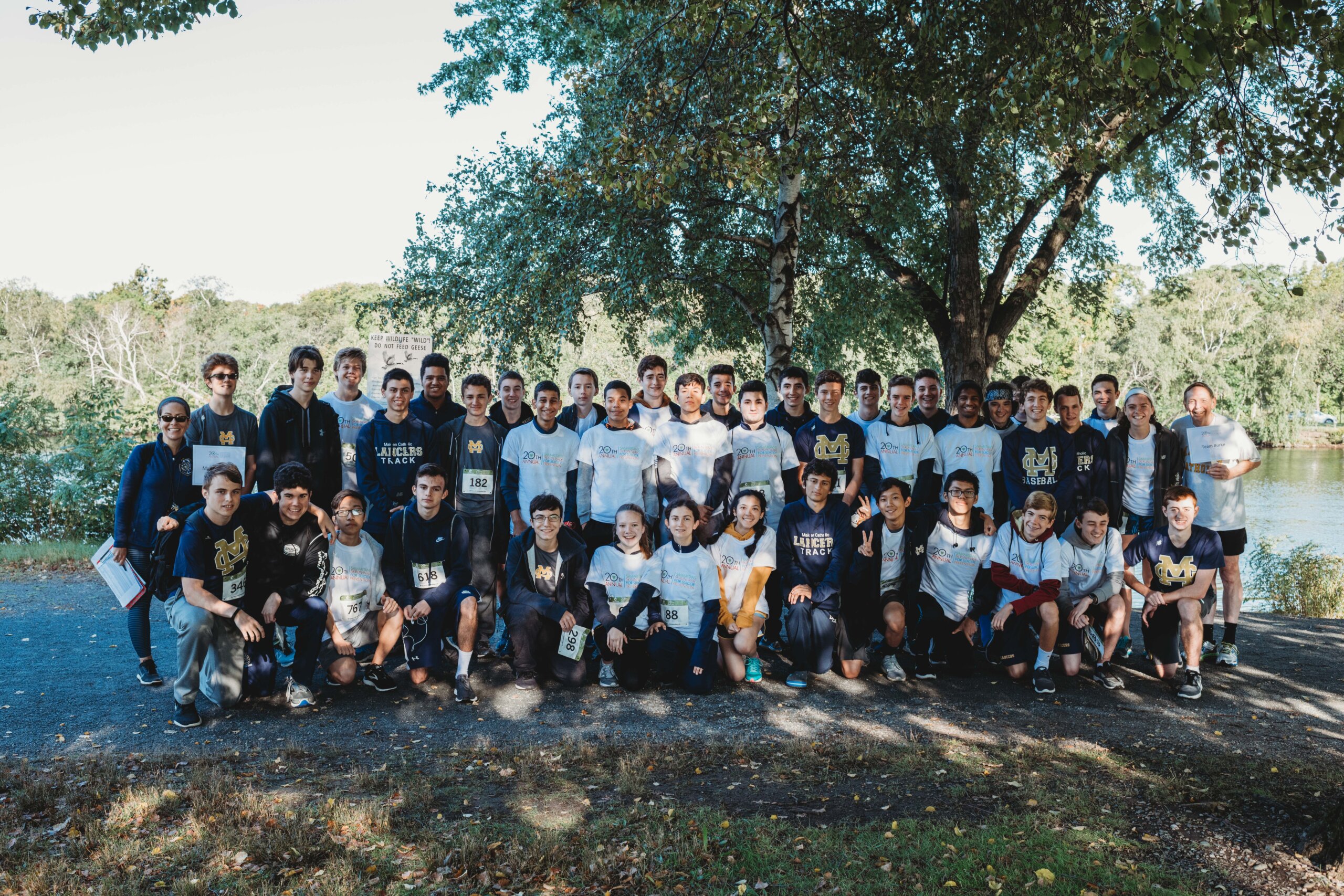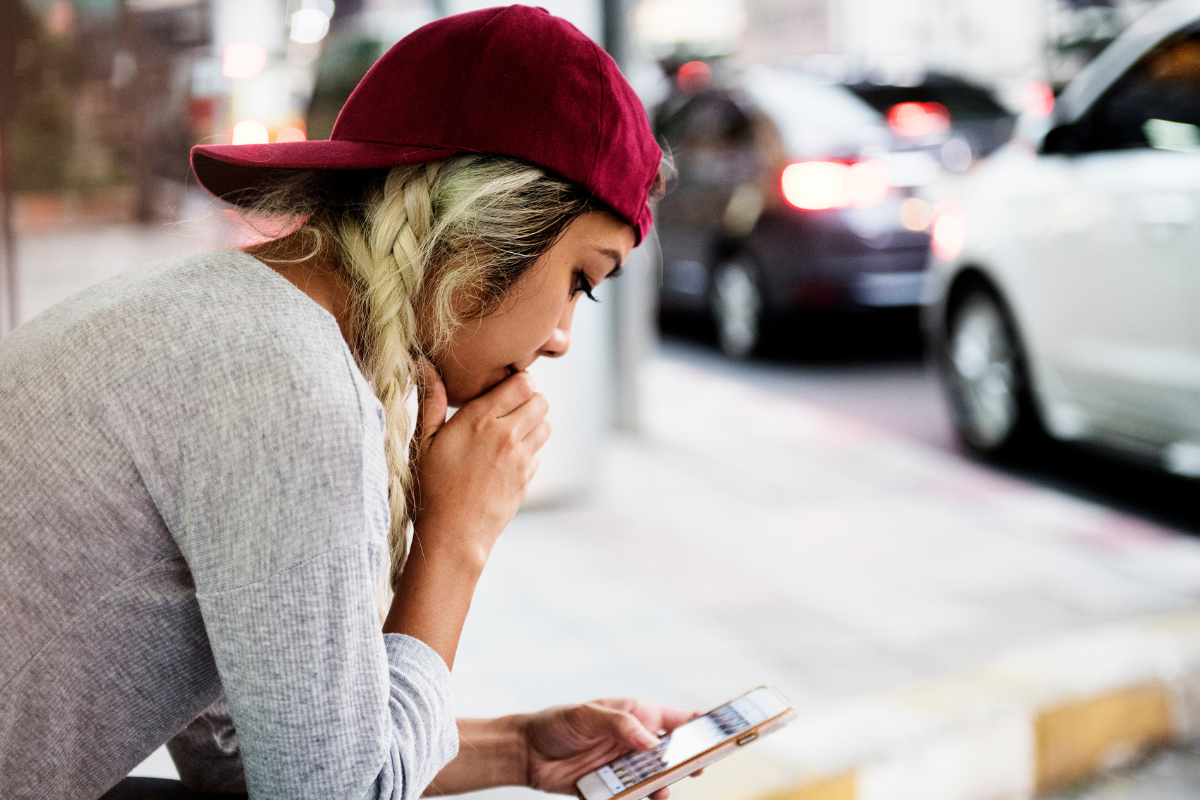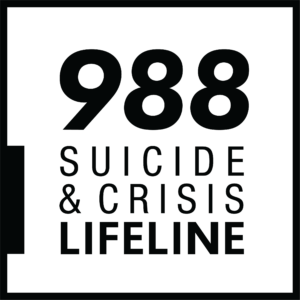Though the Reflections space is typically a place for me to share the goings-on and news about Samaritans, Inc., this month it only seems fitting to provide our organizational statement on the recent attacks in Atlanta against the Asian American and Pacific Islander community. Our full statement follows my signature in this blog, below.
As an organization who aims to support the mental health of all people, we must be compelled to act in times of injustice. As Samaritans, Inc. continues to learn and unlearn about our role in making the world more equitable, it is important that we acknowledge these instances of violence, provide support for those who have been harmed, welcome further discussion, and take action in the push for racial justice.
As I noted last year in our Reflections series, the issue of systemic racism is neither a new understanding nor an area of expertise for me, personally. I continue to strive to do better and to lead with integrity, hope, and courage. If you have questions or thoughts to share on these topics, I encourage you to reach out to me directly at [email protected].
My best,

Kathleen C. Marchi
Chief Executive Officer & President
Samaritans, Inc. wishes to join in the many voices to express our sadness and frustration with the recent violence against the Asian American and Pacific Islander (AAPI) community, and the heightened number of racist attacks since the beginning of the COVID-19 pandemic.
The Stop AAPI Hate advocacy group tracks and responds to incidents of hate, violence, harassment, discrimination, shunning, and child bullying against the AAPI community throughout the United States. Since the beginning of the pandemic, they have tracked more than 3,800 incidents.
Our country recently witnessed yet another example of this violent hate in the attack in Atlanta on March 16, 2021. Compounded with the racial violence inflicted, we would be remiss not to note the presence of gender-based violence as well, as the majority of the victims were women of Asian descent. We keep in our hearts the eight victims of the Atlanta shootings, and send our deepest condolences to every person who has been affected by this tragedy.
Samaritans, Inc. does not support, condone, or tolerate racism or sexism. As we noted in our Statement on Equity and Justice last summer, we know these systemic issues permeate our society, creating massive institutional barriers and often fatal endings for many.
Samaritans, Inc. aims to be an organization that anyone can come to for support. We also recognize that mental health resources that specifically serve the AAPI community may be especially helpful. For that reason, we want to re-share our list of mental health resources for the AAPI community. You can view the full list of resources including organizations specifically supporting AAPI mental health, therapy directories, and articles on our website, but we wanted to highlight a few here:
- Asian Mental Health Collective aims to raise awareness and reduce the stigma around mental health in the Asian American community through various programs including blog posts, a podcast, and a column called Ask a Therapist
- Asian Women For Health is a peer-led community-based organization that aims to support Asian American women’s health through advocacy and education
- National Asian American Pacific Islander Mental Health Association (NAAPIMHA) aims to promote the mental health of Asian Americans, Native Hawaiians, and Pacific Islanders through providing trainings, addressing cultural competencies, and working with community organizations with similar missions
- The Breaking Silences Project provides an artistic platform that opens up the conversations around mental health with Asian American women
We encourage you, as always, to be empathetic and compassionate with those who are carrying pain, including yourself. As a reminder, you can reach out to our 24/7 Helpline by call or text at (877) 870-4673. In efforts to best serve our community, our 24/7 Helpline is now available in more than 240 different languages with the aid of a tele-interpreter service. When your call is answered, please say that you would like to speak to a volunteer in your preferred language.
- Đường Dây Trợ Giúp 24/7 hiện nay đã có bằng tiếng Việt!
Trong nỗ lực phục vụ cộng đồng chúng ta một cách hiệu quả nhất, Đường Dây Trợ Giúp 24/7 của chúng tôi hiện nay đã có bằng hơn 240 ngôn ngữ khác nhau, bao gồm tiếng Việt, với sự hỗ trợ của dịch vụ thông dịch qua từ xa! Nếu quý vị cảm thấy trầm cảm, cô đơn, có ý định tự sát, hoặc chỉ cần nói chuyện, hãy gọi cho Đường Dây Trợ Giúp 24/7 (877) 870-4673. Chúng tôi có các tình nguyện viên sẵn sàng lắng nghe quý vị. Khi có người trả lời cuộc gọi của quý vị, vui lòng cho biết rằng quý vị muốn nói chuyện với một tình nguyện viên bằng ngôn ngữ quý vị ưa dùng.
- 現已開通全天候廣東話幫助熱線!
為了盡力給我們的社區提供最好的服務,我們現已開通 240 多種不同語言的全天候幫助熱線,包括廣東話,同時配備電話口譯人員服務!如果您感到沮喪、孤單、想輕生或只是想說話,請撥打我們的全天候幫助熱線 (877) 870-4673。我們的志工隨時準備好傾聽您的心聲。電話接通時,請指出您想用您的首選語言與志工交談。
- 现已开通全天候普通话帮助热线!
为努力给社区提供最好的服务,我们现已开通超过 240 种不同语言的全天候帮助热线,包括普通话,同时配备电话口译员服务!如果您感到沮丧、孤独、有自杀倾向或只是想找人聊聊,请致电我们的全天候帮助热线:(877) 870-4673。我们的志愿者已准备好听您倾诉。电话接通后,请说明您想用您的首选语言和志愿者交流。
As we also stated last summer, we urge you to be brave in discovering the ways our individual and collective actions have allowed systemic and social injustices to exist for too long. We ask you to also commit to tangible anti-racist actions every day and invite you to hold us accountable. In the meantime, we encourage you to:
- Report incidences of racist violence to organizations who advocate for policy changes, such as Stop AAPI Hate
- Speak up when you hear someone sharing racist or xenophobic statements, and participate in bystander intervention training to stop xenophobic harassment, organized through Hollaback
- Call your legislators and ask what is being done to support the AAPI community
- Support local AAPI-owned businesses who have suffered disproportionately during the COVID-19 pandemic because of racism and xenophobia related to the coronavirus
- Learn about the history of discrimination against the AAPI community, understand the effects of that discrimination in the present, question any internal biases against the AAPI community, and acknowledge the repercussions those biases may have
